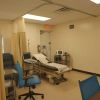How to Navigate Getting a Referral to a Cardiologist for Heart Health Concerns
- 1. When Should You See a Cardiologist for Heart Health?
- 2. Understanding the Referral Process to a Cardiologist
- 3. How to Request a Referral to a Cardiologist
- 4. What to Expect During Your Cardiologist Consultation
- 5. Real Patient Stories: How I Got My Referral to a Cardiologist
- 6. Conclusion: Taking Control of Your Heart Health
1. When Should You See a Cardiologist for Heart Health?
Taking care of your heart health is a priority, but knowing when to seek expert help can be a confusing decision. Many people wait until they experience severe symptoms like chest pain or shortness of breath before consulting a heart specialist, but early intervention can often prevent major health crises. Understanding when to seek a referral to a cardiologist is key in ensuring your heart stays healthy for years to come.
If you’re experiencing any of the following symptoms, it might be time to consult with a cardiologist:
- Chest pain or discomfort — A common sign of heart-related issues that should be checked by a specialist.
- Shortness of breath — Especially during physical activity or when lying down.
- Irregular heartbeats — Such as palpitations or a racing heart.
- Swollen legs or ankles — A sign that your heart may not be pumping blood effectively.
If you have a family history of heart disease, diabetes, or hypertension, it's also a good idea to see a cardiologist regularly, even if you don’t have noticeable symptoms. The earlier heart issues are detected, the more options you will have for treatment and prevention.

2. Understanding the Referral Process to a Cardiologist
If you suspect that your heart health might require expert attention, understanding the referral process to a cardiologist is essential. While some people may directly contact a cardiologist’s office, in most cases, your primary care doctor will be involved in the referral process.
Typically, the process begins with a visit to your primary care doctor. During this visit, you’ll discuss your symptoms and concerns. Based on your medical history, risk factors, and any initial tests, your doctor may suggest seeing a cardiologist for further evaluation.
In the United States, most insurance plans require a referral from a primary care physician to see a specialist like a cardiologist. This ensures that the insurance company will cover the costs. If your insurance policy requires a referral, you won’t be able to make an appointment with a cardiologist without it, unless you have a direct-access plan or out-of-network benefits.
Capital Health Medical Center – Hopewell
capital health medical center hopewell
1 Capital Way, Pennington, NJ 08534, USA

3. How to Request a Referral to a Cardiologist
If you believe that seeing a cardiologist is necessary for your health, and your primary care doctor hasn’t suggested it yet, don't hesitate to request a referral. It’s your health, and you deserve to take proactive steps to care for it. Here’s how you can ask for a referral:
- Document Your Symptoms: Before your visit, write down any heart-related symptoms you’ve been experiencing. This could include chest discomfort, difficulty breathing, dizziness, or unusual fatigue.
- Prepare Your Medical History: Be prepared to discuss any history of heart disease in your family, your personal health history (such as high blood pressure, diabetes, or smoking), and any other relevant information.
- Ask Questions: When you see your primary care doctor, ask about the need for a cardiology referral. Share why you believe a specialist is necessary for your concerns.
- Be Assertive: If your doctor is hesitant or dismissive, politely insist on getting a referral. It’s important that your doctor takes your concerns seriously and refers you to a cardiologist if necessary.
Remember, you are your best advocate. If you feel your symptoms warrant seeing a heart specialist, don’t be afraid to push for the referral you need.
4. What to Expect During Your Cardiologist Consultation
Once you’ve received your referral and have made an appointment with a cardiologist, it’s important to be prepared for the consultation. A cardiologist will assess your symptoms, medical history, and any tests that have been done. Here’s what to expect during your first visit:
- Initial Assessment: The cardiologist will ask about your symptoms, lifestyle, and family history of heart disease. They may also conduct a physical exam to check your heart rate, blood pressure, and listen to your heart sounds.
- Tests and Diagnostics: Depending on your symptoms and history, your cardiologist may recommend tests like an EKG (electrocardiogram), an echocardiogram, or a stress test to assess your heart’s function.
- Diagnosis and Treatment Plan: Based on your test results, the cardiologist will discuss their findings and recommend a treatment plan. This could include lifestyle changes, medication, or in some cases, further procedures such as angiograms or heart surgery.
Your first visit is just the beginning of your heart health journey. A cardiologist will work with you to develop a plan that best meets your needs, whether that’s through medical management, ongoing monitoring, or more specialized interventions.
5. Real Patient Stories: How I Got My Referral to a Cardiologist
Let’s take a look at some real stories to illustrate how people have navigated getting a referral to a cardiologist. Emily, a 45-year-old woman, had been experiencing shortness of breath and occasional chest tightness. After discussing her symptoms with her primary care doctor, she was referred to a cardiologist for further evaluation. The cardiologist diagnosed her with a minor valve issue, which was easily treatable with medication and lifestyle changes.
Another case involves Michael, a 60-year-old man who had a family history of heart disease. He went to his primary care doctor for a routine check-up and mentioned feeling fatigued more than usual. His doctor recommended a referral to a cardiologist, where he underwent a stress test and was diagnosed with a blocked artery. Fortunately, with prompt treatment, Michael avoided a heart attack and felt better within weeks.
These stories highlight the importance of advocating for your heart health and requesting a referral when necessary. Early intervention can often prevent more severe health issues in the future.
6. Conclusion: Taking Control of Your Heart Health
When it comes to heart health, being proactive is the key to preventing complications and ensuring that you stay on the path to well-being. If you’re experiencing symptoms that concern you, don’t wait to seek help. Speak to your primary care doctor and request a referral to a cardiologist if needed. Getting the right care early can make all the difference in your heart health.
If you're looking for a cardiologist near you, start by reaching out to your primary care provider and discussing your concerns. Take control of your heart health today and ensure you’re getting the expert care you deserve.





















Deborah Heart and Lung Center
deborah heart and lung center
200 Trenton Rd, Browns Mills, NJ 08015, USA